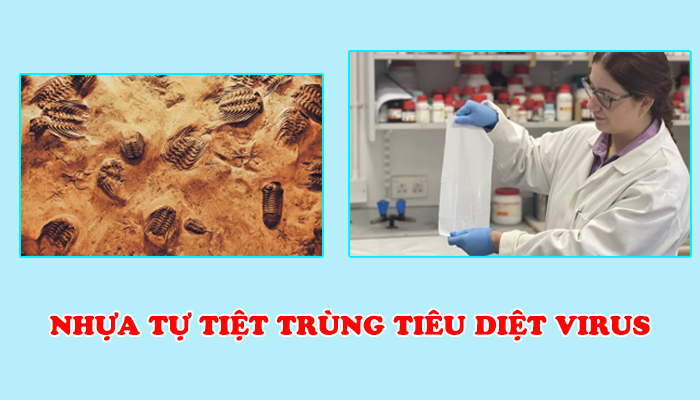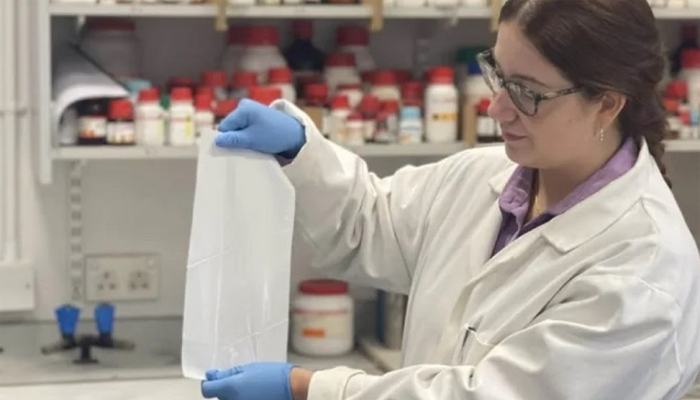
SELF-STERILIZING PLASTIC KILLS VIRUS
Scientists have developed a plastic that kills viruses that are able to persist on surfaces and infect hospitals like nCoV.
GRAPHENE: THE SUPER MATERIAL FORMULATED FROM PLASTIC
COOLING PAINT
PLASTIC FOAM RECYCLING
FLEXIBLE GLASSES - INSPIRATION FROM SEASHELLS
SELF-STERILIZING PLASTIC KILLS VIRUS
Scientists have developed a plastic that kills viruses that are able to persist on surfaces and infect hospitals like nCoV.
The self-sterilizing plastic film effectively killed the virus in the test. Photo: Queen's University
The team at Queen's University in Belfast says the plastic film they have developed is cheap and can be used in protective suits. The plastic works by reacting with light to release chemicals that kill the virus. Research shows the material can kill millions of viruses, even those that stay on clothes and surfaces for a long time. The study results were published in the October issue of Photochemistry and Photobiology.
According to some studies, nCoV can survive for 72 hours on some surfaces. Norovirus that causes vomiting can survive outside the body for two weeks and wait for a new host to infect. A team of chemists and virologists is working on self-sterilizing materials that reduce the risk of infection from contaminated surfaces. Their idea is to create a material where the virus cannot survive. Copper can kill germs on contact but is less flexible.
So the team used thin sheets of plastic containing titanium dioxide nanoparticles. These particles react with ultraviolet light, even in small amounts from a fluorescent light bulb, to release a molecule called oxygenated free radicals. They react with the genetic material of the virus. As a result, the virus dies and becomes useless.

According to Professor Andrew Mills in the chemistry department of Queen's University, the new plastic film could replace many single-use plastic films in the medical industry and help reduce the cost of sterilization. The material has been tested in the laboratory with 4 viruses including 2 influenza viruses, nCoV, and picornavirus, which have many characteristics that allow them to remain highly stable outside the body. Under laboratory conditions, about a million virus particles were placed on self-sterilizing plastic, far exceeding the amount of virus needed to initiate an infection.
According to Dr Connor Bamford of Queen's University School of Medicine, all the viruses were wiped out in two hours. The team is looking at other surfaces such as tablecloths and hospital curtains as well as the food handling industry. They will need field testing to determine how much of a difference self-sterilizing plastic can make.
>> Click HERE for the best paint chemicals on the market<<
Contact
MEGA VIETNAM
Office address: Floor 2-A2-IA20, Nam Thang Long Urban Area, Pham Van Dong Street,
Dong Ngac Ward, Bac Tu Liem District, Hanoi City, Vietnam
Email: contact@megavietnam.vn
Tel: (+84) 24 375 89089; Fax: (+84) 24 375 89 098
Website: megavietnam.vn
Hotline: 1800.577.728 Zalo: 0971.023.523





